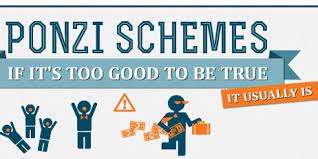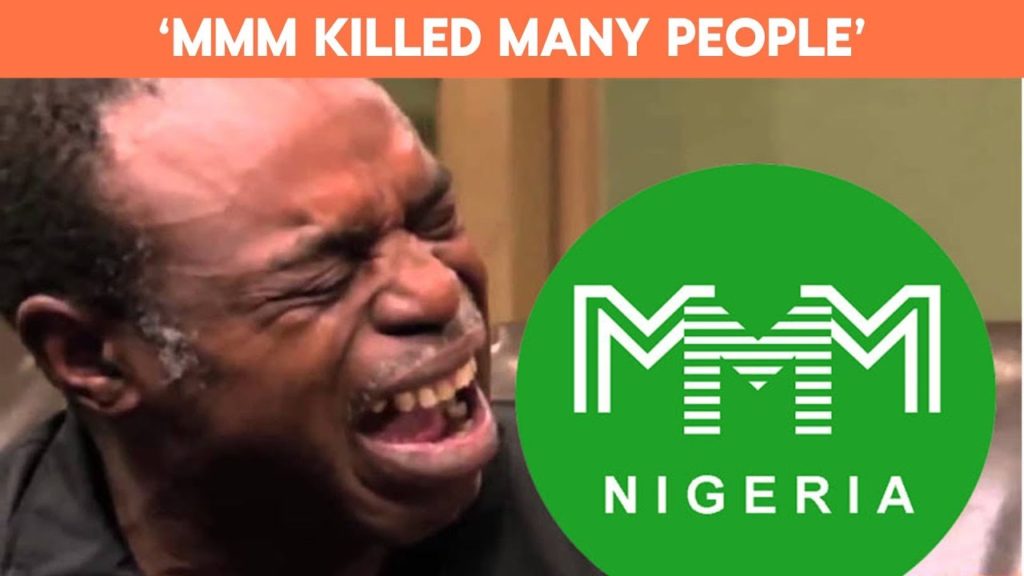By Otomewo Oritsejolomi Joshua
Femi, a 300 level student of the University Of Lagos checked his twitter feed to see rumours that Piggyvest, the online savings platform had lost 2 billion naira in a scam investment deal with the micro lending company Imagine Global Solutions and that users’ savings had been compromised. He quickly attempted to withdraw his savings from Piggyvest, fortunately the rumours were false. Piggyvest was not involved with the fraudulent company and he was able to recover his savings.
Imagine Global solutions is the latest ponzi scheme to unravel leaving desperate investors stranded. The company which was founded in 2017 by Mr Bamise Ajetunmobi and his wife as a micro finance institution to provide investment banking, micro-lending and brokerage services has reportedly received over N20 billion from investors promising returns of 10% monthly. However the company had been running a massive ponzi scheme which is on track to become the largest in the history of Nigeria. After failing to pay profits to investors for two months the couple fled reportedly to Antigua and Barbuda leaving investors to count their losses.

Ponzi schemes also known as pyramid investments are fraudulent investments that deceive investors with the promise of extravagant and unrealistic returns. It requires older investors to recruit new investors and pays profits to them with the funds from the new investors. This makes it unreliable as there is a limit to the number of new investors that can be attracted, so it is ultimately destined to fail.
Ponzi schemes succeed by convincing victims that profits are coming from legitimate business activities like product sales. A Ponzi scheme can maintain the delusion of a sustainable business as long as new investors continue to contribute funds. Eventually they all fail as the size increases and the founders disappear with investors’ money.
Since the 1980s Ponzi schemes have existed but have recently become much more fashionable due to the worsening economic situation of the country. In 2016 as the country slid into an economic recession, MMM a popular ponzi scheme defrauded over 2 million Nigerians of N18 billion, this was followed by Loom Money Nigeria in 2019 and Racksterly in 2020.

Despite several warnings from the EFCC, Securities and Exchange Commission (SEC), Banks and other reputable financial institutions, many people still fall for ponzi schemes. They are seen as a legitimate means to make quick cash and make ends meet. According to Adesola, a trader who lost N300,000 in the Loom scheme “There are no jobs and I saw this as an opportunity to earn some money.” People fall prey to these scams because of celebrity endorsement. Racksterly was endorsed by some celebrities including Davido, Rema and Williams Uchemba and many people invested on the strength of their word.
Greed is another reason why people engage in ponzi schemes; the desire to make outsized returns with minimal risk propels investments in these shady schemes. Chibuzor, a mechanic, made some profit from the Loom scheme before it collapsed; ” I invested 100k in Loom and got 200k, reinvested and got 300k. It was the third time trying that I finally lost about 300k. It was a choice I made and I would do it again because there is no investment without risk. If I see another programme I’d still invest, in life you win some and lose some, and my wins have been greater than my losses.”
Imagine Global is the latest Ponzi scheme to crash, but there are still many more out there waiting to crash and new ones are springing up everyday with claims of astronomical profits. Andrew Abiola, a stock broker with the Securities and Exchange Commission advises Nigerians to be more vigilant when making investments and, do thorough research, and confirm the legal status of companies before putting their money in any investment.”Any investment that promises high returns, without a proven and recognised business model and in which you are constantly pressured to invest is usually fraudulent. The golden rule of investment is that if it looks too good to be true then it probably isn’t true.










Good write up 🔥🔥🔥
I actually know someone that lost money in racksterli
Nigerians and greed sha.